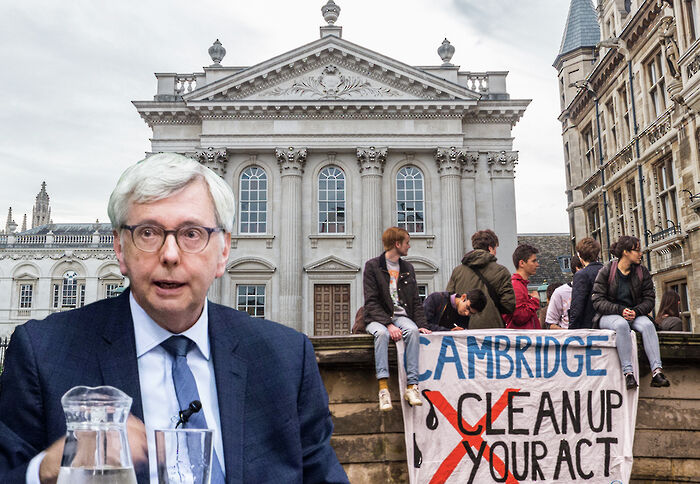Zero Carbon criticise University Councillor for not publicly declaring pro-divestment stance
Although her election manifesto promised to scrutinise “university business over ethical standards”, Umang Khandelwal had not included an explicit commitment to advocate for divestment

The University Councillor, Umang Khandelwal, has been criticised by Cambridge Zero Carbon Society for not publicly declaring her stance on divestment.
In an open letter signed by 16 student societies, the pro-divestment group calls on the University management to “make the right choice” by “immediately committing” to remove the University’s direct and indirect investments in fossil fuel companies.
Notable signatories include Cambridge Universities Labour Club, CUSU Women’s Campaign and CUSU BME Campaign.
In the letter, Khandelwal is urged to “publicly come out in favour of divestment” and “commit to speak and vote in favour of full divestment” at a University Council meeting on Monday. At the meeting, the findings of the University’s working group on divestment, of which Khandelwal is a member, will be discussed, with the University Council expected to come to a decision on whether to commit to full divestment.
In a statement, Zero Carbon Society said that Khandelwal had “fallen short on all accounts” of fulfilling her campaign pledges of advocating “divestment, accountability, representation, and values-based decisions”. They added that they “deplore[d] her inaction” and said that Khandelwal should “immediately take leadership” on divestment, claiming they “received no reply” when they asked her to sign their open letter.
Despite making no explicit promise to divestment, in her manifesto she listed one of her goals as to make “values-based decisions” including “scrutinising university business over ethical standards”. In an interview last year with The Cambridge Student, Khandelwal said that divestment was one of the “most important policies”; commenting that “it is time that the University makes a real commitment to effective ways of combating climate change”.
In response to Zero Carbon’s claims, Khandelwal said that she has “consistently engaged with and responded to student groups, the student press, mainstream media, and the University” on “multiple occasions in a timely and professional manner”. She noted that she had served on the University’s divestment working group “for the past year”, adding that there has been “an excellent exercise of consulting widely across the University” as well as with “external stakeholders”.
Marcel Llavero Pasquina, Khandelwal’s successor as University Councillor for the 2018-2019 academic year, is a member of Zero Carbon Society. As part of his campaign, Pasquina promised to help create a “democratic, transparent, and accountable University” and pledged his support for environmental justice, gender equality and decolonisation.
Over the past few months, Zero Carbon Society have escalated their direct action. In March, the group held their largest march to date, which was attended by over 300 students. Last week, “Cambridge divest from fossil fuels” was sprayed on the walls of Senate House, which the University said had to be removed at “significant cost”. On Wednesday, three first year undergraduates began a hunger strike and this Friday evening student activists began an ongoing occupation of Greenwich House, the University’s finance offices.
 News / Cambridge student numbers fall amid nationwide decline14 April 2025
News / Cambridge student numbers fall amid nationwide decline14 April 2025 Lifestyle / First year, take two: returning after intermission14 April 2025
Lifestyle / First year, take two: returning after intermission14 April 2025 News / First candidate to announce chancellorship bid pledges to tackle bullying 12 April 2025
News / First candidate to announce chancellorship bid pledges to tackle bullying 12 April 2025 News / Uni to ‘review’ tripos rankings and weekend lectures in undergrad teaching overhaul10 April 2025
News / Uni to ‘review’ tripos rankings and weekend lectures in undergrad teaching overhaul10 April 2025 Sport / Cambridge celebrate clean sweep at Boat Race 202514 April 2025
Sport / Cambridge celebrate clean sweep at Boat Race 202514 April 2025




